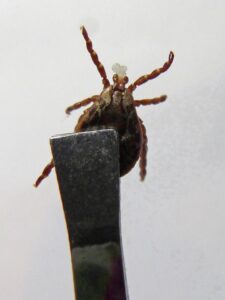Heartworm is a potentially serious parasitic infection that affects many dogs and cats. Before your pet has a chance to develop late-stage problems, detecting the early warning signs of heartworms can help. Symptoms of infection usually only arise once the heartworms are mature (around six months) and can take many more months before signs arise. Let’s have a look at the most common signs of heartworm infection.
Lethargy And Inactivity
If your pet has heartworms, your pet may find it difficult to perform even the simplest of activities. This results in a pet that is not as active as it once was. If your pet starts acting out of character and does not want to go outside, stops playing as often, avoids physical activity, or seems constantly tired there may be an issue with heartworm.
A Dry Cough
Heartworm is known to make its way into the lungs as they multiply in the veins and surrounding lung tissue. This can cause problems breathing, shortness of breath, and coughing after exercise. Sometimes after even a light walk, you may notice your pet begins a soft but dry cough – possibly even followed by fainting.
Swollen Abdomen Or Bulging Chest
One of the byproducts of heartworm presence is fluid buildup in the abdomen. Over time this fluid can begin to cause an unusual protrusion of the abdomen. There may also be a bulging chest appearance. A bulging chest is often the result of anorexia and weight loss that can arise.
Weight Loss
Although weight loss is indicated in many pet health issues, it is one of the things that can point toward a heartworm infection. If some of the other common heartworm signs are also in place, and weight loss is occurring at an irregular and unsolicited rate, there may be an infection. Anorexia can be one of the later stage results that arise over time if left untreated. With heartworm, even the most simplest of tasks, like eating, can become exhausting.
Breathing Abnormalities
In addition to coughing, you may notice that your pet has trouble breathing. Rapid or shallow breathing can result from the heartworm infection in the lungs and surrounding blood vessels. This is also part of a larger issue of fluid building up on the lungs making it hard for the body to oxygenate the system.
Total Collapse
Although total collapse is a late-stage sign of heartworm infection, it is something to be aware of. You may still be able to save your pet, even at this stage of infection. If your pet collapses due to late-stage heartworm infection, there is very little time left for treatment. Your pet may go into shock and may have only days before your pet will perish due to heart failure, and red blood cell destruction.
Other Possible Signs
There are a few other possible signs that can indicate heartworm infection. Some of these signs, however, also indicate the possibility of other health conditions and should be immediately checked out by a veterinarian. These signs can include:
● Excessive sleeping
● Seizures
● Blood pressure increase
● Nosebleeds
● Lameness
● Blindness
● Pneumonia
Heartworms can lose their way in your pet’s body on occasion and end up in the eyes, brain, or other tissues. This can result in symptoms like seizures, blindness, or lameness, although very rare.
Final Thoughts
Being able to detect the early warning signs of heartworm can help to save your pet from a potentially life-threatening health condition. Prevention is the most appropriate measure when it comes to heartworm. Even so, keeping an eye out for these common signs can keep your pet safe and give you peace of mind. If you suspect your pet is experiencing a health problem, please reach out to us right away. If we can get ahead of the issue before it gets out of control, your pet has the best chance of a long and healthy life. We are always here for you and your pet! Contact our Live oak, CA office to learn more.



